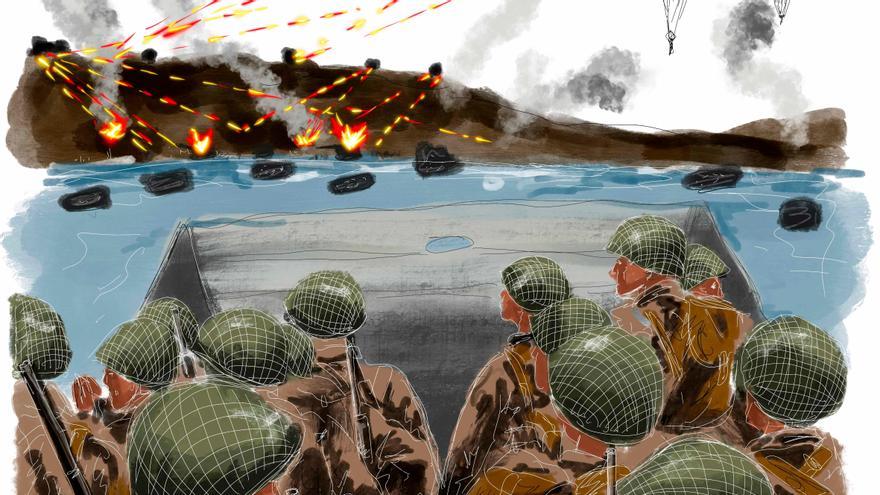Wars and their consequences.
Power and dominance are words that seemed to have been asleep for a few years, but today they wake up again.
What is a war?
It is an armed conflict between two relatively massive human groups, using all kinds of strategies and technologies, to violently impose themselves on the other, either causing death or simply defeat. It is the most serious form of social and political conflict that can exist between two or more human communities.
But war threatens life and social organization, replaces civil order with military norms and standards, and not only implies the death of people but also the loss of their autonomy. War represents a resounding failure of Reason and modern civilization. Therefore, it would be a "total social phenomenon" (Tiryakian, 2004), since it usually implies:
- The suspension of the rule of law and, consequently, of certain citizenship rights;
- The transformation of economic activity from a civilian and consumerist model to another of a war economy, thus making the majority of the population suffer innumerable hardships and calamities;
- The military recruitment of civilians from all activities, at the cost of significant economic losses for those abducted or enlisted;
- The profound alteration of the conventional sexual patterns both of the soldiers and of the affected civilian population itself, to the point of using rape as yet another weapon of war;
- The symbolic and material reward for the brave deeds of war carried out, which in times of peace would be nothing more than simple crimes.
Causes.
The causes of war can vary enormously, depending on the social, political, economic, and cultural context in which they occur, as well as the parties involved and their particular history. Usually, there is not a single motivation for war, but rather a set of them and contextual variables, given that war is a complex matter.
The motivations of war are passionate and emotional elements, rooted in human nature and the constant search for power. The causes of war are rationalized elements that are found in the prelude to wars and invariably lead to them.
Consequences.
Any war causes indelible havoc wherever it takes place and some of the most common and devastating social consequences are:
- Violence: it is the greatest stressor that society experiences, it wears down people's minds and causes the social fabric to deteriorate over time to unsuspected limits.
- Social fear: at the individual level, prolonged fear can cause everything from gastrointestinal disorders, to sleep problems and even post-traumatic stress disorders. As if that were not enough, the enemy always knows this, and many times each side tries to promote fear over the rival to attack him morally.
- Spillover: this consequence of war means that for some time, people are highly activated, emotionally and behaviorally, trying to survive and cope. This wears people down enormously and ends up causing in many cases overflows and other effects.
- Emotional blockage: as a result of fatigue and the too long duration of the conflict, human beings end up blocking themselves, exhausted from trying to face a situation that overwhelms us. In the end, learned helplessness and emotional insensitivity end up appearing.
- Pain: pain, due to all the events that are experienced, is unstoppable and constant because almost daily there is terrible news and this prevents the person from working out their problems well and ends up dragging them throughout the conflict (however long it lasts). last) and beyond.
- Guilt: this feeling appears in people who participate in wars, even those survivors who feel that they did not do enough to help their acquaintances and relatives, feel this consequence of the war.
- Psychiatric disorders: a very high percentage of the population ends up suffering the consequences of war in the form of mental disorders. Post-traumatic stress disorder or PTSD is the most studied consequence of war. It affects a very high percentage of soldiers and, after all, of people involved in it.
- Uprooting. all the people who can, naturally, flee to other countries to avoid suffering a death that in many cases is almost certain. This situation of uncertainty and uprooting as they leave their home and relatives behind is very painful for everyone.
- Losses and separations: people lose everything. This is undoubtedly one of the most traumatic consequences of the war of all. We are not only talking about the material component or even the loss of loved ones but also about the loss of identity, social status, work, and goods that had a symbolic value for people.
Some consider any attempt to regulate war as naive since it obeys the most selfish of human desires. According to Carl Von Clausewitz, a thinker on the subject, “war is the continuation of politics by other means”.



Comentarios
Publicar un comentario